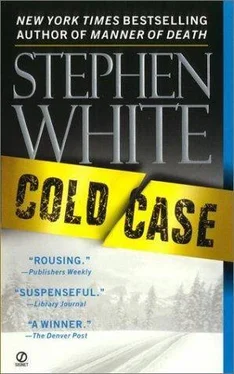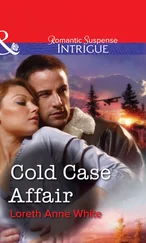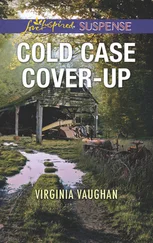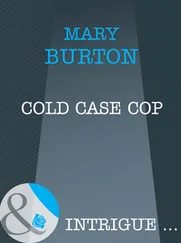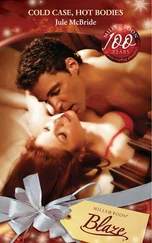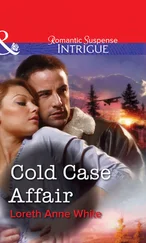"Can you imagine what it was like for him after Dennis died? For my dad?" he asked, and shook his head.
"You know that my father poured the drinks to the man who ended up killing Dennis? My dad felt that it was exactly the same as if he ended up killing his own son. Well, when you imagine what it was like in our house, imagine the worst. Because that's how it was. The guilt. The shame. The recriminations. The anger. The anger was vicious. It was all there in our house after the accident." Honestly, I said, "I can't really imagine. It's too horrible."
"The truth is I lost my father and my brother on the same night. Dad was never the same after Dennis died."
I needed a clarification.
"The anger? It was his?"
"No. Mom's. She could be… mean. Still can be. She had a mean streak even before the accident. But after? Especially after Dad decided he was going to sell the bar and she saw the writing on the wall. She knew they were going to lose the business and then we were probably going to lose the house.
She was cruel to him after that. And he just took it from her. It was like a penance for him."
"But it took its toll?"
"You know about the suicide attempt?"
I nodded.
"Not much. Just what I saw on the news." I didn't mention the fact that I'd seen videotapes of the news earlier that day.
"He took an overdose. Pills and alcohol. She found him in the basement. Mom did.
Made me drive him to the hospital. She wouldn't call for an ambulance. She didn't want the neighbors to know what he'd done. She didn't want anything to do with him. Didn't visit him in the hospital. She called him 'the coward' after that. To me. To his face. To any friends the two of them had left. He didn't have a name anymore. To her, he was just 'the coward." She wouldn't let him come back home after he got out of the hospital. He stayed with some people in town.
Eventually he got a little apartment."
Every day in my practice I saw men and women who had crumbled in the face of psychological stresses that didn't begin to compare to the pressures that this young man had endured as an adolescent. Yet he appeared emotionally intact. I wondered about things I couldn't assess so readily, about his relationships with women, and his relationships with mentors in the veterinary school.
Still, I marveled.
Kevin interrupted my reverie.
"That's when Dad went to see Dr. Welle. After the suicide attempt."
I nodded knowingly.
Kevin spotted my arrogance and corrected me, gently.
"No, you don't understand.
This is the part that people get confused about. Dad liked Dr. Welle. He liked him a lot. He wouldn't have done anything to hurt him. Anything."
I was perplexed. This young man seemed way too intelligent to discount, so cavalierly, the evidence of his fathers crime.
"You don't believe that your father shot Gloria Welle, Kevin?"
The young man's face tightened. I saw wrinkles around his eyes where there had been none before.
"Of course he shot her. There's no other explanation for what happened at the Silky Road that day. But it wasn't because he was angry at Dr. Welle. That's the part that everyone has wrong. And that's the part that I want to help everybody clear up."
"And you know that how?" My voice was soft. He was out on a limb and I wanted to offer him a cushioned place to fall.
"Because I had breakfast with him that morning. With Dad. He was pretty upbeat.
Not happy, not like that. He wasn't capable of being happy anymore. But he was up enough that we could actually have a conversation, you know? That hadn't happened a lot recently. He told me that Dr. Welle was a man he could trust. A man who was going to save him from himself." Kevin pulled a battered little notebook from his shirt pocket and slapped it on his thigh.
"I'm not making all this up. I kept a journal in those days. Like a diary?
That's how I know."
"So why do you think it, um… happened?"
"At first I thought maybe he just snapped. I'd been worried about him losing it-you know, going crazy?-for a while."
"But you rejected that?"
"Yes sir, I did. I didn't think he could go from being reasonable at breakfast to being psychopathic and homicidal midmorning. Now maybe that's possible with some people. But not with my dad. And then there's the gun he used."
"Yes."
"It was his. When Dennis and I were, oh, twelve or thirteen, he'd showed us where it was at home and taught us how to use it. He also told me that he could never use it himself-could never point it at another human being-unless the family was in danger. He wanted us to feel the exact same way. He meant what he said that day. I know it. I knew him."
I wanted to believe Kevin was correct in the same way I often wanted to believe in the veracity of my patients as they constructed and polished a version of reality that would shine more brightly than the tarnished one that often stains the truth. Kevin's view of his father was part of his ego's defenses against the enormous weight of his pain. I decided to say nothing that might interfere with the integrity of those defenses. He needed them.
I said, "It must be hard making sense of what happened, then."
"Yeah," he acknowledged.
"Hard."
I watched a tear form in the corner of his eye. Kevin didn't react to it until it had migrated halfway down his nose.
"There is one way that you might be able to discover… some information that might help you answer the questions you have about your father's frame of mind."
He swallowed.
"How?"
"Talk with Dr. Welle" Kevin laughed bitterly.
"My mom tried. Years ago. He wouldn't talk to her. Said he didn't have the right to tell anyone what my father said to him. during therapy.
Confidentiality."
"Technically, that's true. But after your father died the rights to control the record of what happened in his treatment with Dr. Welle passed to the person who controlled your father's estate. If that person asked Dr. Welle about your father's treatment, Dr. Welle would have to respond. He'd have no choice."
"That would be my uncle Larry. My dad's brother. He handled Dad's estate."
"If your uncle Larry sends Dr. Welle a letter identifying himself as the personal representative of your father's estate-if I were him, I'd have the letter notarized-and authorizing the release of confidential records, Dr. Welle should be happy to cooperate with the request."
"That's it?"
"That should be all it takes."
"Will you write that down for me? How to do it?"
"Of course " Across the room I spotted a tiny red dot light up beside the door.
The light was a sign that my next patient had arrived. I said, "Kevin, I have an appointment now. Just one more today. I'll be done in about forty-five minutes.
Would you like to get together again when I'm done and talk some more about all this? Maybe go have a beer or something? I'll go over the instructions on how to approach Dr. Welle again then."
He smiled.
"That would be great. But maybe coffee or something to eat. I don't drink."
I felt foolish.
I was late getting home after meeting with Kevin Sample. Once my last patient had left my office I'd walked Kevin over to the Mall and offered to buy him something to eat. He wavered for a moment on the sidewalk between Juanita's and Tom's Tavern on Pearl Street, finally choosing Tom's and ordering a cheeseburger, salad, fries, and onion rings. He drank lemonade. He devoured the food and afterward talked almost nonstop for another hour.
I walked him back to his car and watched him drive away, hoping he felt more contentment than he had when he decided to come to Boulder and look me up. On the way out of town I stopped at the police station to leave the videotape of the news coverage of Gloria Welle's murder for Sam. Despite the errand, I made it home before Lauren returned from her shopping excursion to Denver.
Читать дальше
